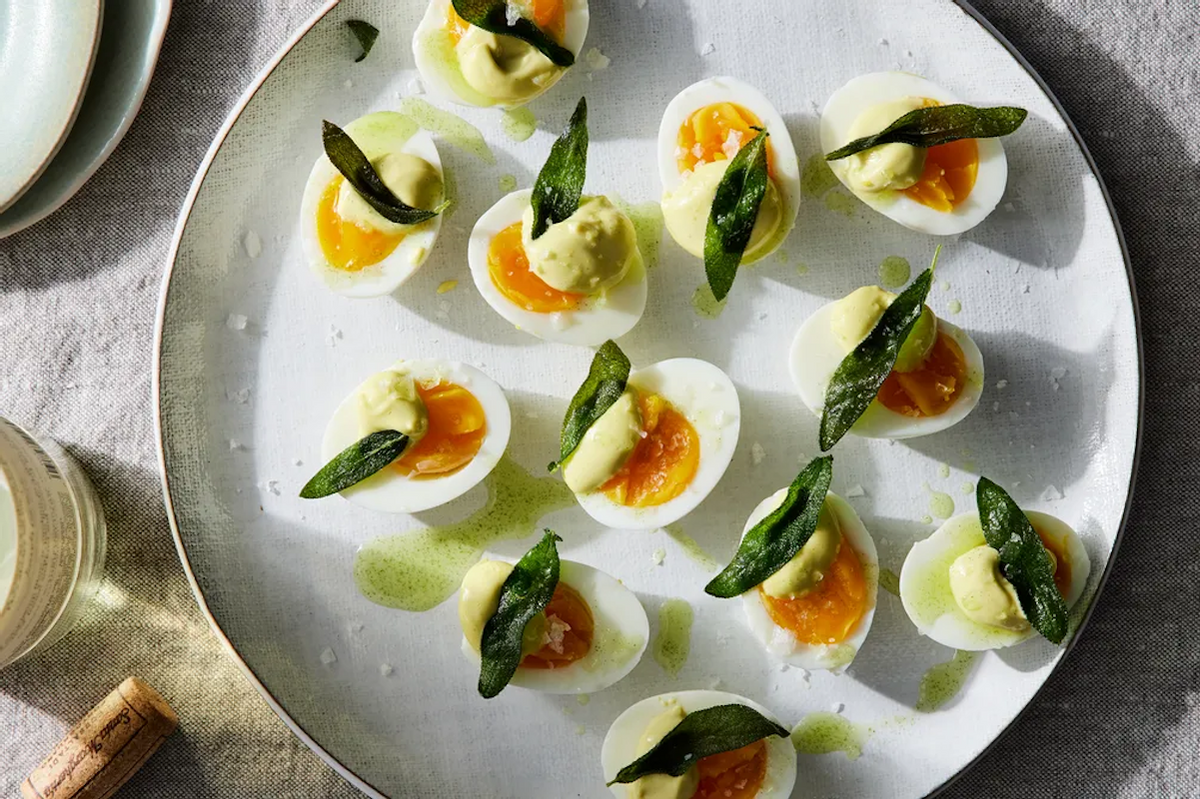The best kitchen tips are usually passed along from friends, or parents, or — if you work in an office with an always-bustling test kitchen — from colleagues.
And such is the case with perfectly cooked hard-boiled eggs. We all learned to cook them from someone, somewhere; they're personal, they're nostalgic, and also pretty genius. But make no mistakes — they can be finicky, and, when hard-boiled, a real pain to peel.
Enter one of our own, Blake, with his trick for the perfect way to peel perfect hard boiled egg, gleaned from the kitchen of Blue Hill where he used to work. We tried his method immediately, and tested it a whole bunch of times, and we've never looked back. What followed was a whole new world — and some massively upgraded deviled eggs, egg salad, and protein-packed snacks.
So, here, without delay, is the absolute cleanest, most pain-free way to peel a hard boiled egg, no blowing or wooden cane required.
How to peel hard boiled eggs
Peeling the perfect hard boiled egg starts with cooking eggs, of course. Cook your eggs however you like — in a pot of boiling water with a splash of vinegar, a squeeze of lemon juice, a teaspoon of baking soda, or a pinch of salt. All of these additions help make it easier to peel boiled eggs. Slightly older eggs will make it easier to peel, but using them is not necessary. After all, we have to work with what we have. Another pro tip? Start with water that's already boiling. I know it seems treacherous, but it will make it much easier to peel hard-boiled eggs. "I have noticed the egg white sticks to the shell when I start from cold [water]," says Jason Hua, executive chef at The Dutch. J. Kenji López-Alt explains this phenomenon on Serious Eats: "Slow-cooked egg whites bond more strongly with the membrane on the inside of an eggshell."
Once the eggs are fully cooked (set a time for 10 to 12 minutes), the next step is to cool the eggs down in an ice bath or a bowl of very chilly water, where they should stay for a full five minutes or so. Set a timer. Do not disturb. I know you're hungry and anxious, but the eggs will be better off if you just leave them alone.
Once they are cool enough to handle, fill another clean bowl with room temperature water, and submerge the eggs, one at a time. Using the edge of the bowl to knock them, you can now start cracking the shell. Do this gently, so as to not break the freshly boiled egg entirely in half.
Once cracked, the water helps to gently separate both the membrane — that attaches itself with a vice-like grip to the egg — and the shell from the egg white, making it so much easier to peel.
From here, discard the eggshells or, better yet, compost them — they'll turn into fantastic fertilizer. Then slice the boiled eggs and add a sprinkle of flaky salt for a sneaky snack, dice them for potato salad, or slice them for a Niçoise salad.
Presto! The world's shiniest, smoothest, pearliest eggs to impress your friends with. Just don't forget to pass on the tip to the next generation.




Shares